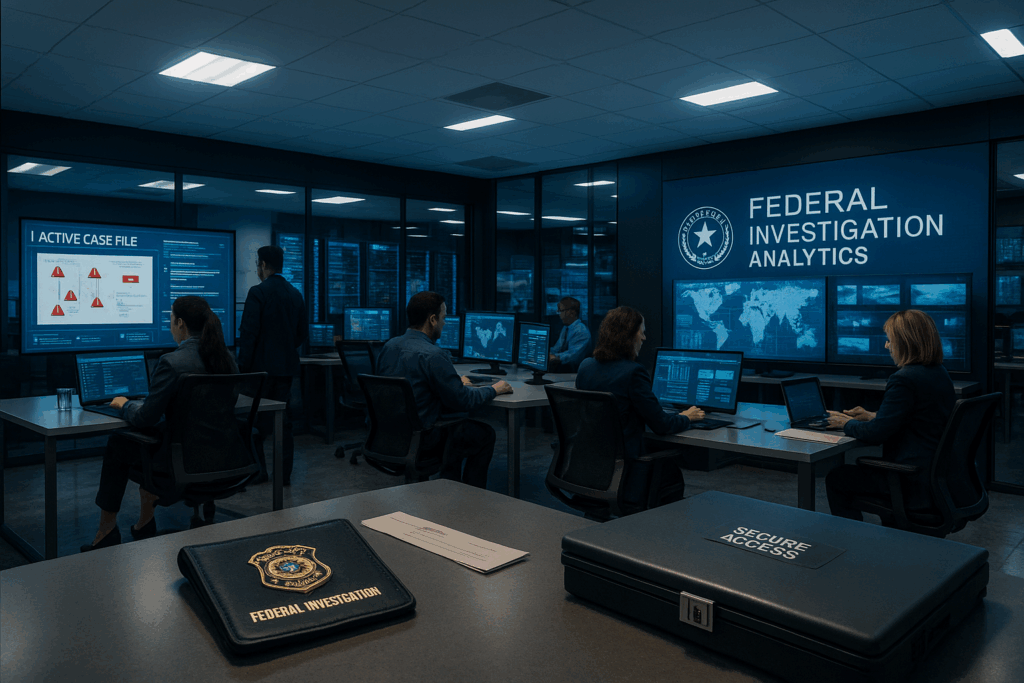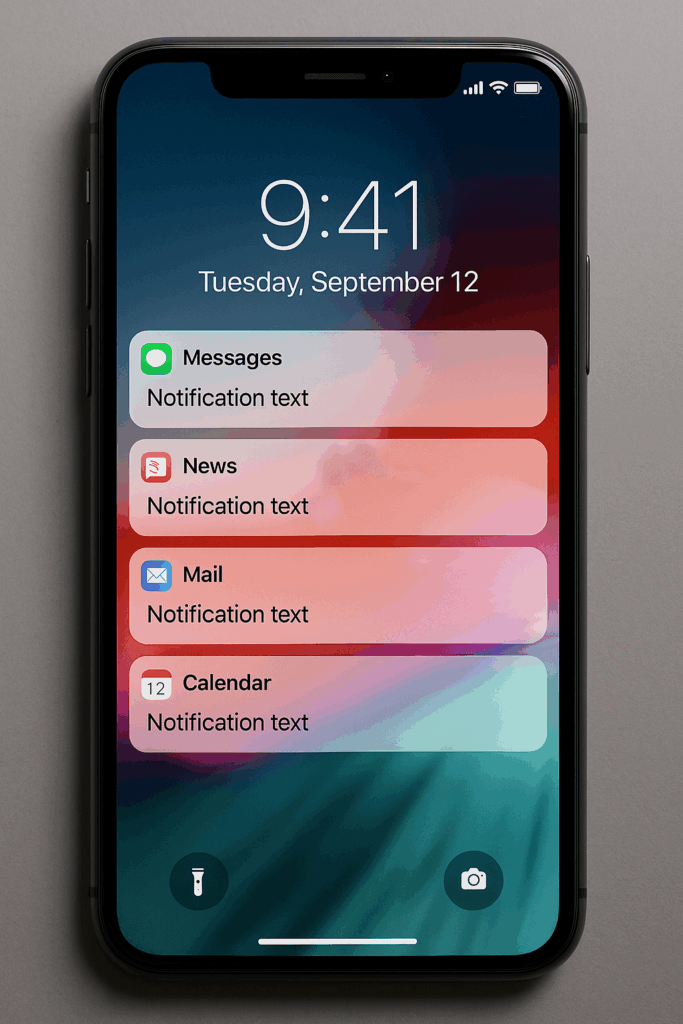FBI Adopts New Surveillance Method

The Federal Bureau of Investigation (FBI) has introduced a groundbreaking strategy to locate suspects involved in serious crimes, harnessing FBI tracking technology that utilizes push notifications. This unconventional yet highly effective method demonstrates how the agency continues to evolve its digital capabilities to stay ahead of criminals in an increasingly connected world.
This technique leverages the ubiquitous presence of smartphones in our daily lives and has reportedly aided in unmasking suspects involved in severe crimes such as pedophilia, terrorism, and murder. The strategy involves the use of mobile push notification data, a feature most smartphone users interact with daily without much thought.
Push notifications are those alerts that pop up on our mobile devices, providing us with updates, messages, and other notifications from various applications. What many might not realize is the potential for these notifications to serve as digital breadcrumbs, leading law enforcement agencies like the FBI to individuals trying to remain under the radar. According to reports from sources like The Washington Post and Gizmodo, the FBI has been able to request and obtain information linked to specific push notification codes, known as “push tokens,” from tech giants such as Google.
What Are Push Tokens?
These push tokens can be instrumental in the investigative process, as they are unique to each device and app combination, thereby providing a means to track the digital footprint of a suspect. In one noted case, an FBI agent was able to trace an email address associated with a push token back to an individual in Toledo, as detailed in an affidavit. This method showcases the intricate balance between leveraging technology for security purposes and the ongoing debate over privacy and surveillance.
Concerns About Privacy Issues
The use of push notifications by the FBI underscores a broader trend in law enforcement’s increasing reliance on digital technology to combat crime. While this approach has proven beneficial in tracking down offenders, it also raises significant privacy concerns, as it involves the collection and analysis of data from individuals’ personal devices. This strategy reflects the complex interplay between advancing technology, law enforcement capabilities, and the imperative to safeguard civil liberties in the digital age. As technology continues to evolve, so too will the methods by which agencies like the FBI pursue their investigative endeavors, continually navigating the fine line between security and privacy.
How Do They Use Push Notification to Catch Criminals?

The use of push notifications by law enforcement, particularly the FBI, to catch criminals is a sophisticated method that leverages modern technology and the ubiquity of smartphones. Push notifications, typically used by apps to send alerts and updates directly to a user’s smartphone, contain unique identifiers known as “push tokens.” These tokens are crucial for the notifications to reach the correct device and can be used to trace the device back to an individual.
Digital Fingerprints
When a push notification is sent, it includes this unique token, which acts somewhat like a digital fingerprint for the device. In the context of criminal investigations, when a suspect uses an app that sends push notifications, law enforcement can request the push token from the app developer or service provider. With the token in hand, agencies like the FBI can then approach companies like Google or Apple, which manage push notification services for Android and iOS devices, respectively, to obtain the information linked to that token.
What Information Is In Push Tokens?
Additionally, this information may include email addresses, IP addresses, and sometimes even location data, depending on what the app collects and how the service configures the push notifications. Furthermore, by analyzing this data, investigators can potentially identify the owner of the device, track their movements, and gather evidence related to criminal activities.
The process is legally complex and typically requires a warrant or court order, ensuring that such invasive measures are justified by substantial evidence of criminal activity. The technique has been particularly useful in cases involving serious crimes such as child exploitation, terrorism, and other offenses where suspects might use digital communication tools.
Critics, however, raise concerns about privacy and the potential for abuse. The reliance on digital tokens and the vast amount of data that apps and services collect raise questions about the extent to which individuals’ online activities are monitored and the safeguards in place to protect civil liberties.
Will Disabling Notification Prevent FBI Tracking?
Disabling push notifications on your device might seem like a straightforward measure to enhance privacy and potentially evade tracking. The reality is more complex, especially in the context of sophisticated law enforcement techniques like those employed by the FBI.
Push notifications, which applications send to a user’s device, provide updates, messages, or other information. Each push notification comes with a unique identifier, or “push token,” that directs the notification to the correct device.
While turning off push notifications could theoretically reduce the amount of data directly sent to your device, it does not entirely eliminate the ability of law enforcement agencies to track an individual if necessary. This is because the fundamental mechanisms that might be used for tracking, such as the push tokens themselves, are not solely dependent on the active receipt of notifications. These tokens, and other identifying markers, are part of the registration process of an app with a push notification service, like those operated by Apple (APNs) and Google (FCM).
A Combination Of Data Points
Moreover, the tracking and investigative techniques employed by entities like the FBI are multifaceted and do not rely on a single data point, such as push notifications. These agencies use a combination of data sources, including but not limited to IP addresses, email accounts, app usage patterns, and more traditional investigative methods. Consequently, simply disabling push notifications does not make a device or its user invisible to tracking if there are valid legal grounds for an investigation.
It’s also important to note that law enforcement typically must obtain legal authorization, such as a warrant based on probable cause, to use such tracking techniques. This legal framework aims to prevent arbitrary surveillance and protect citizens’ privacy rights.
In essence, while disabling push notifications might reduce some forms of data sharing, it is not a foolproof method to prevent tracking by law enforcement agencies in cases where there is a legitimate and legal basis for an investigation. The digital footprint left by users is extensive and multifaceted, making it challenging to become entirely untraceable based solely on the management of app notifications.
Cases Where Tracking Was Necessary and Proved Helpful

This innovative approach has been instrumental in several high-profile cases. As a result, it has led to the apprehension of individuals involved in serious criminal activities. The method hinges on the use of push tokens, unique identifiers linked to specific apps on individual devices. Consequently, this can provide crucial leads in investigations.
Child Exploitation
One notable case where this method proved effective was the apprehension of an individual involved in child exploitation. Law enforcement agencies, upon discovering the sharing of illicit content online, traced the digital trail back to a specific app used by the suspect. By coordinating with the app’s service provider, they obtained the push token associated with the suspect’s account. Agents then used this token to enlist cooperation from tech giants like Google or Apple, depending on the device’s operating system, to disclose the account details connected to it. This crucial piece of information led to the identification and arrest of the suspect, showcasing the efficacy of push tokens in tracking down individuals engaged in illegal activities.
Kidnapping And Murder
Another significant application of this method was in a kidnapping case that tragically escalated to murder. Investigators, working on scant leads, turned to digital evidence for clues. A push token retrieved from a communication app, used by the suspects, became the linchpin in the investigation. By following the digital breadcrumbs left by this token, law enforcement was able to uncover the identities of the perpetrators, leading to their subsequent arrest and conviction.
These cases underscore the potent combination of technology and traditional investigative work in modern law enforcement. While the use of push notifications and tokens raises important questions about privacy and the scope of surveillance, there’s no denying the critical role they play in solving crimes that might otherwise remain shrouded in digital anonymity. This method’s success in bringing criminals to justice highlights its value as a tool in the ever-evolving landscape of law enforcement tactics.
In conclusion, the use of FBI tracking technology through push notifications marks a significant shift in modern law enforcement tactics. By integrating digital tools into criminal investigations, the FBI demonstrates its adaptability in combating crime in an era dominated by smartphones and online communication. This innovative approach not only enhances efficiency but also raises important discussions about privacy, ethics, and the balance between security and individual rights.
Need Help? Call Us Now!
Do not forget that when you or anyone you know is facing a criminal charge, you have us, the Law Office of Bryan Fagan, by your side to help you build the best defense case for you. We will work and act in your best interest for you and we will obtain the best possible outcome that can benefit you.
Also, we can explain everything you need to know about your trial and how to defend your case best. We can help you step by step through the criminal process.
Therefore, do not hesitate to call us if you find yourself or someone you know who is facing criminal charges unsure about the court system. We will work with you to give you the best type of defense that can help you solve your case. It is vital to have someone explain the result of the charge to you and guide you in the best possible way.
Moreover, at the Law Office of Bryan Fagan, we understand the complexities of criminal law cases. Therefore, our professional and knowledgeable criminal law attorneys have the expertise to build a defense case tailored to your specific needs. Ultimately, our goal is to achieve the best possible outcome that can benefit you.
Also, here at the Law Office of Bryan Fagan, you are given a free consultation at your convenience. You may choose to have your appointment via Zoom, Google Meet, email, or an in-person appointment, and we will provide you with as much advice and information as possible so you can have the best possible result in your case.
Call us now at (281) 810-9760.

Other Related Articles
- Two By Twos: FBI Reveals Astonishing Child Abuse Allegations
- How to Get a Criminal Record Expunged in Texas
- FBI Shut Down A Sizable Bot Farm
- Can I Place a GPS Tracking Device on My Spouse’s Car?
- The role of the non offending parent in a Child Protective Services case
- Wiretapping, GPS Tracking and Divorce in Texas
- An Emerging Case On The FBI Informant’s Allegations
- How to Protect Your Crypto NFT Stock Accounts
- The Unexpected Use Of High Tech SkyECC Allows For Murder Plot
- Emerging Scandal: An Investigation Into The Albuquerque DWI Unit
FAQs on FBI Using Push Notifications
Using push notifications to track suspects involves obtaining push tokens which are unique identifiers for app installations on devices. This method has proven effective in cases like child exploitation and kidnapping.
Disabling push notifications might reduce the amount of personal data shared, but it does not completely prevent tracking if there is a legal basis for an investigation.
The method has been used effectively in numerous cases, including tracking down serious criminals like kidnappers and individuals involved in child exploitation networks.
While this tracking method is powerful, it raises significant privacy concerns, especially related to how data is collected and used beyond the initial scope of investigations.
Legal frameworks like warrants are required for such surveillance, ensuring that the use of push notifications for tracking adheres to legal standards aimed at protecting privacy.

